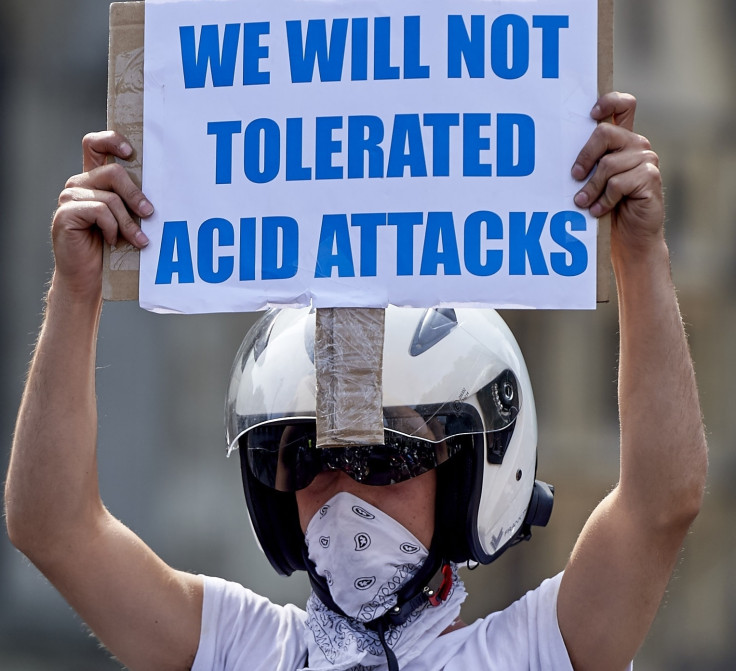Acid attacks have created 'no go areas in parts of London'
Labour MP Stephen Timms has called on the government to take significant action to stop the brutal attacks.
Concerns over a rise in acid attack incidents in London made its way onto the floor of the parliament on Wednesday (20 November), with one MP calling on the government to take stronger action.
Labour's Stephen Timms, a long-time campaigner for the clampdown on acid attacks, pressed the need for more effective measures to restrict the sale of acid and impose stronger punishments against perpetrators of such crimes.
"I've had a number of discussions with representatives of moped delivery drivers and they say there are now parts of London where their drivers are not willing to go because of the danger of attack," the East Ham MP said, pointing out that UK has the highest rate of acid attacks per capita in the world.
"I think all of us would regard it as unacceptable that there are no go areas in parts of London and parts of the UK. I think it requires some significant action to deal with the problem."
Timms informed that his constituency has already volunteered to stop selling acid to people under the age of 21.
"I think the Home Secretary suggested that people could not be sold acid under 18. I think there is quite a strong case for making that 21, rather than 18," he added.
DUP MP Jim Shannon stated that guilty parties should be subject to the full extent of the law, and the crimes be considered as attempted murder. "We need to change the legislation and need to represent those people who are recipients of attack," he said.
"I sincerely urge that the Government takes all of this into consideration and brings attacks on par with knife violence crimes and ensures that the sentence fits the crime, which leaves a life destroyed."
The topic reached the floor following the recent sentencing of Arthur Collins who planned and carried out a brutal acid attack at a London nightclub in April.
The ex-boyfriend of UK reality TV star Ferne McCann received a 20-year sentence for injuring 22 people, including two Australian model sisters. According to police, 16 people suffered serious burns after Collins sprayed acid onto the crowd following a dance floor argument at the Mangle nightclub in the London borough of Hackney.

Earlier this month, new statistics indicated that the UK has one of the worst levels of recorded acid attacks in the world, with more than 800 attacks being reported each year.
"The UK now has one of the highest rates of recorded acid and corrosive substance attacks per capita in the world and this number appears to be rising," Rachel Kearton, the Assistant Chief Constable of Suffolk Police and National Police Chiefs Council (NOCC) lead on corrosive attacks, said, according to The Independent.
"It appears that in 2017 we will again exceed previous records for the number of attacks [but] I strongly feel that this is an under-reported crime at this time."
Unlike India and Bangladesh which have the highest numbers of acid attacks — mostly against women, the UK victims are most often men. According to Acid Survivors Trust International (Asti), UK attacks involving acid or other corrosive substances have increased by more than two and a half times the figure from five years ago.
Data from Asti showed:
- Between 2011 and 2016, the number of male victims was twice that of female ones.
- Most acid attack incidents happened in London, with more than 1,200 cases recorded over the past five years. Between 2011 and 2016, there were 1,464 crimes involving acid or corrosive substance.
- Northumbria recorded the second highest number of cases with 109 recorded attacks, Cambridgeshire had 69, Hertfordshire 67, Greater Manchester 57 and Humberside 52.
- Of the 2078 acid attack crimes recorded between 2011 and 2016, only 414 of those crimes resulted in charges being brought.






















